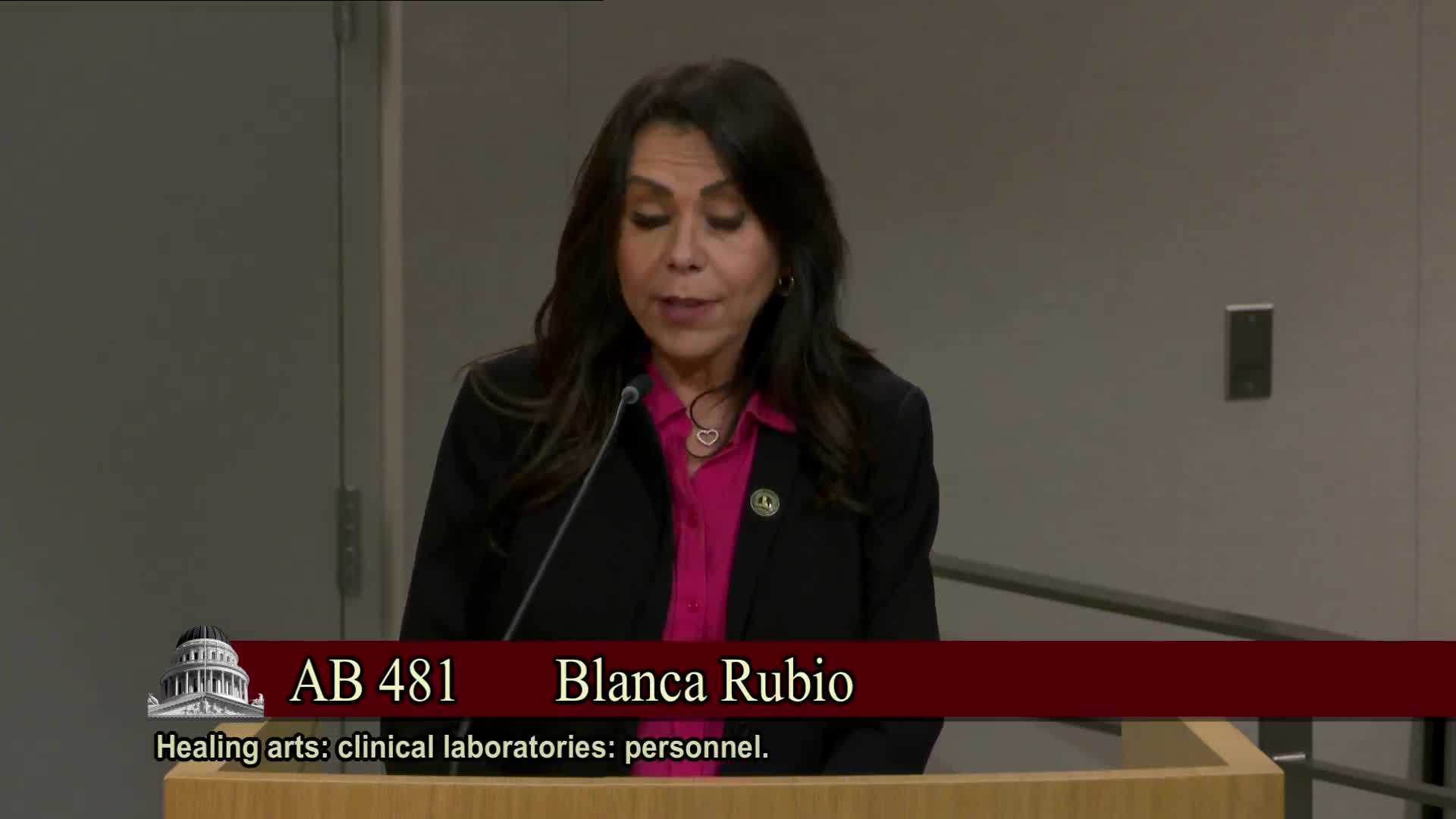Article not found
This article is no longer available. But don't worry—we've gathered other articles that discuss the same topic.
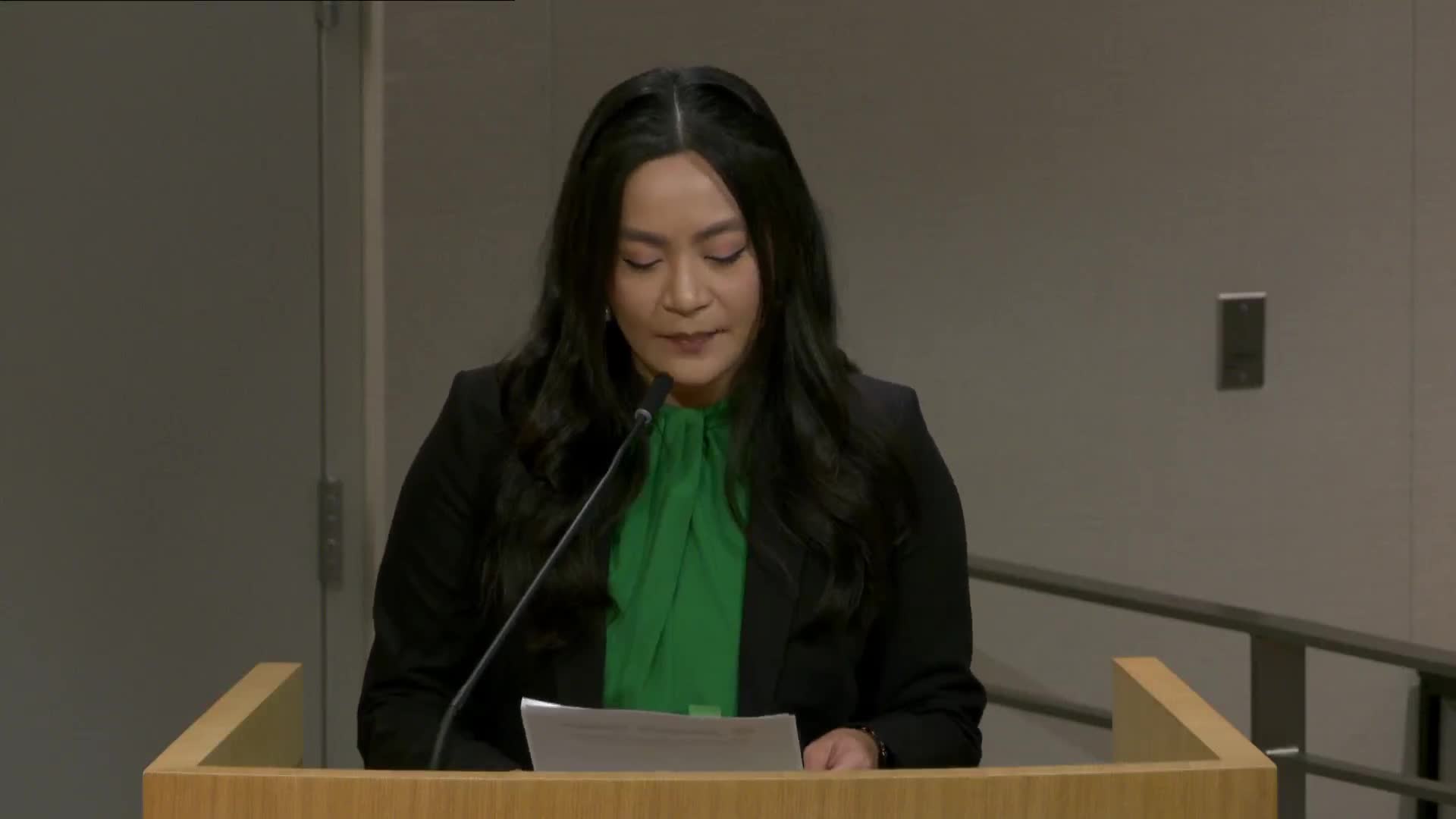
Committee advances bill to create state recovery grants for small businesses and nonprofits after wildfire testimony
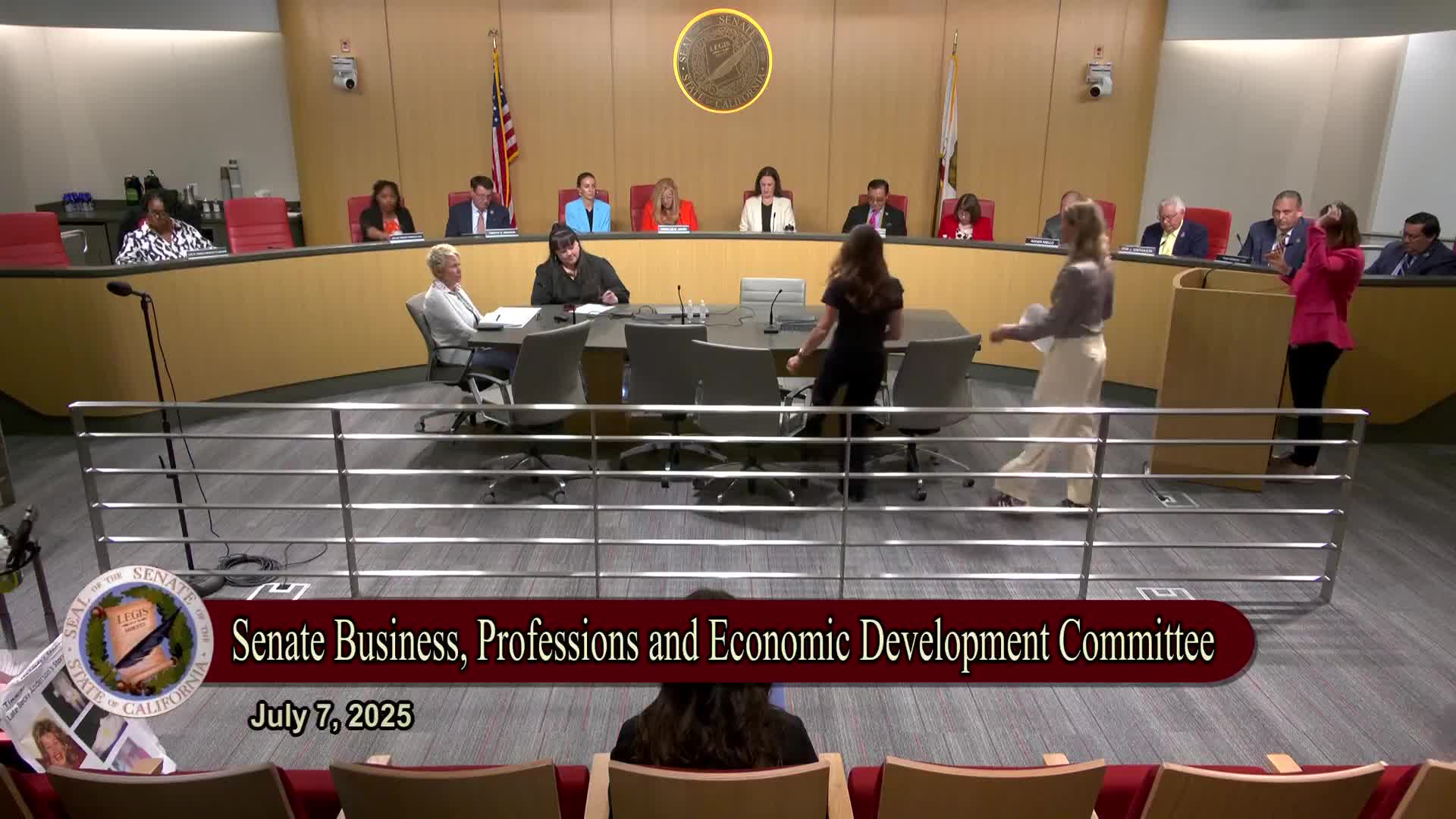
Menopause Equity Act advances after debate; author agrees to amendments on continuing-education requirement
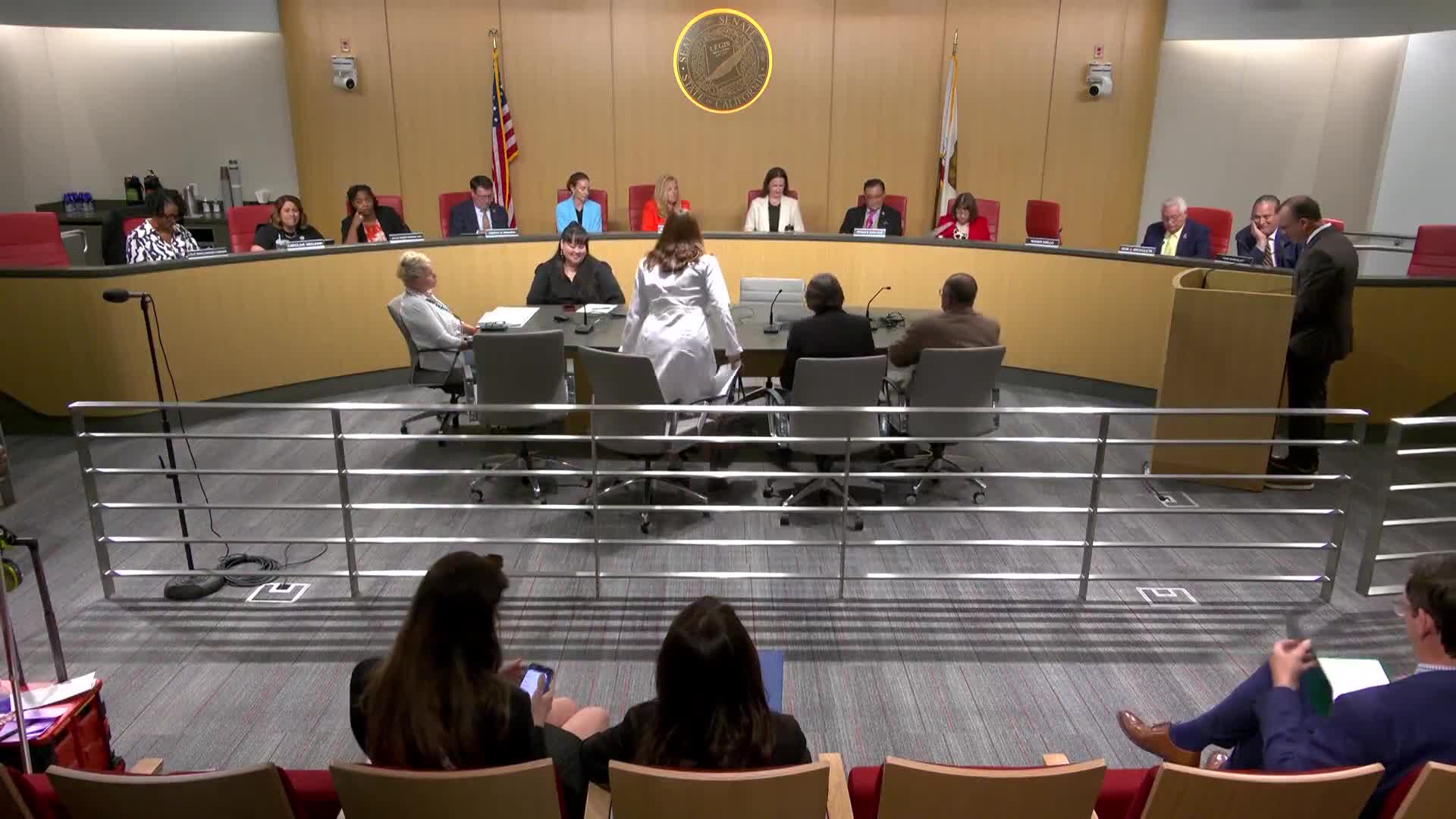
Bill to create physician health program advances after contentious hearing over scope and oversight
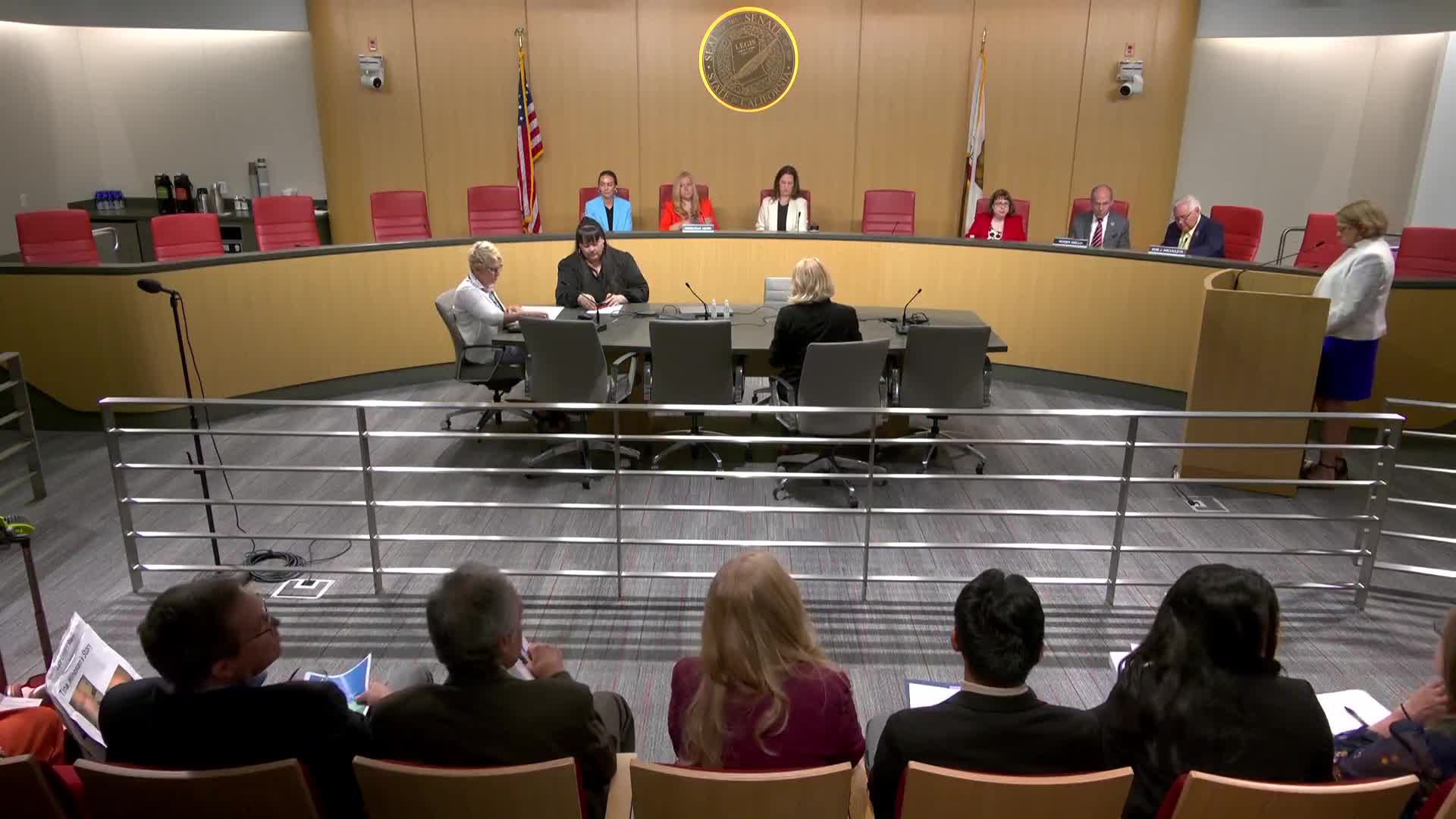
California committee hears bill to treat intoxicating hemp like regulated cannabis; debate centers on enforcement and taxes
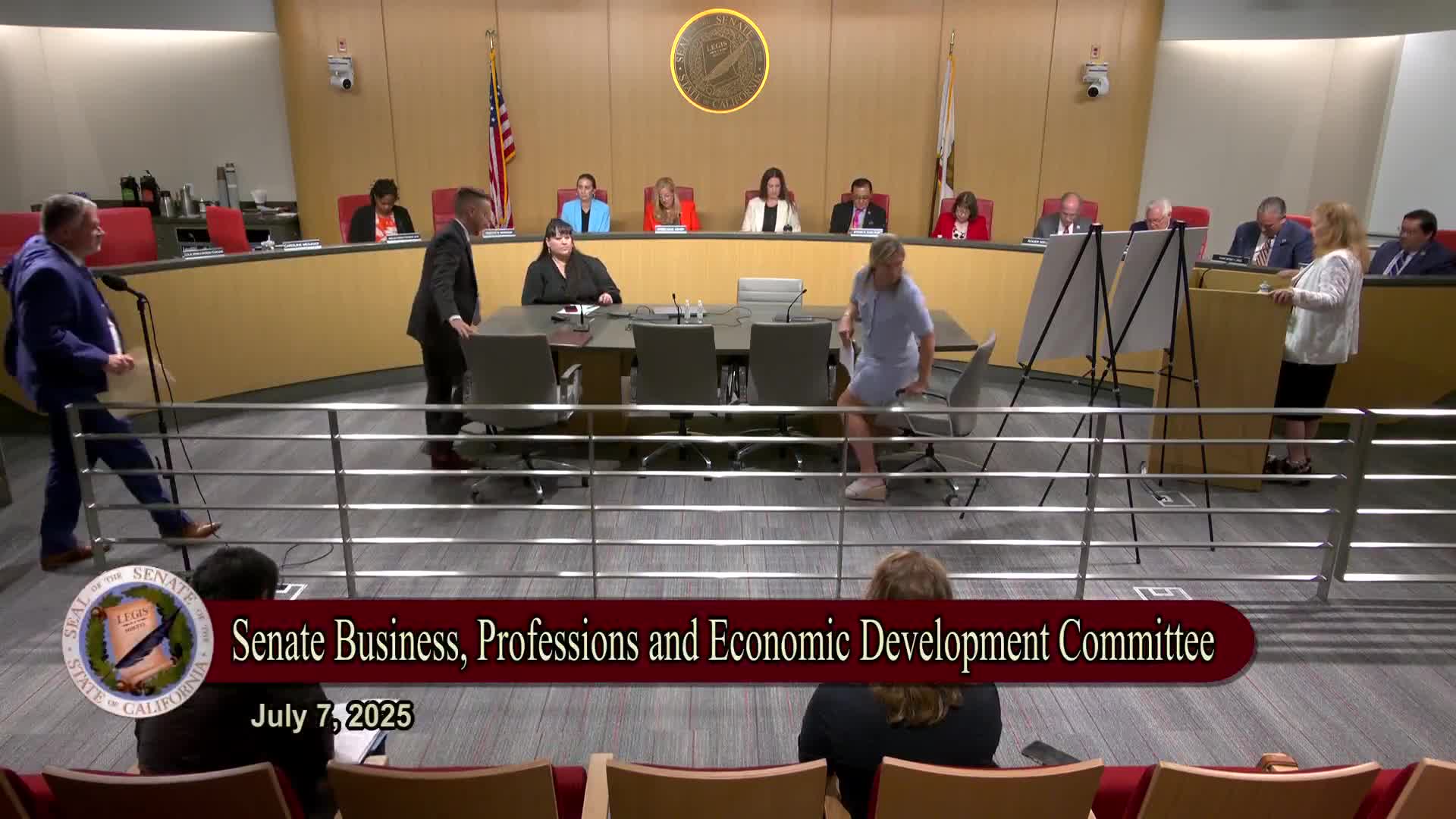
Bill would let Attorney General seek license suspensions for contractors with serious repeat wage-theft findings
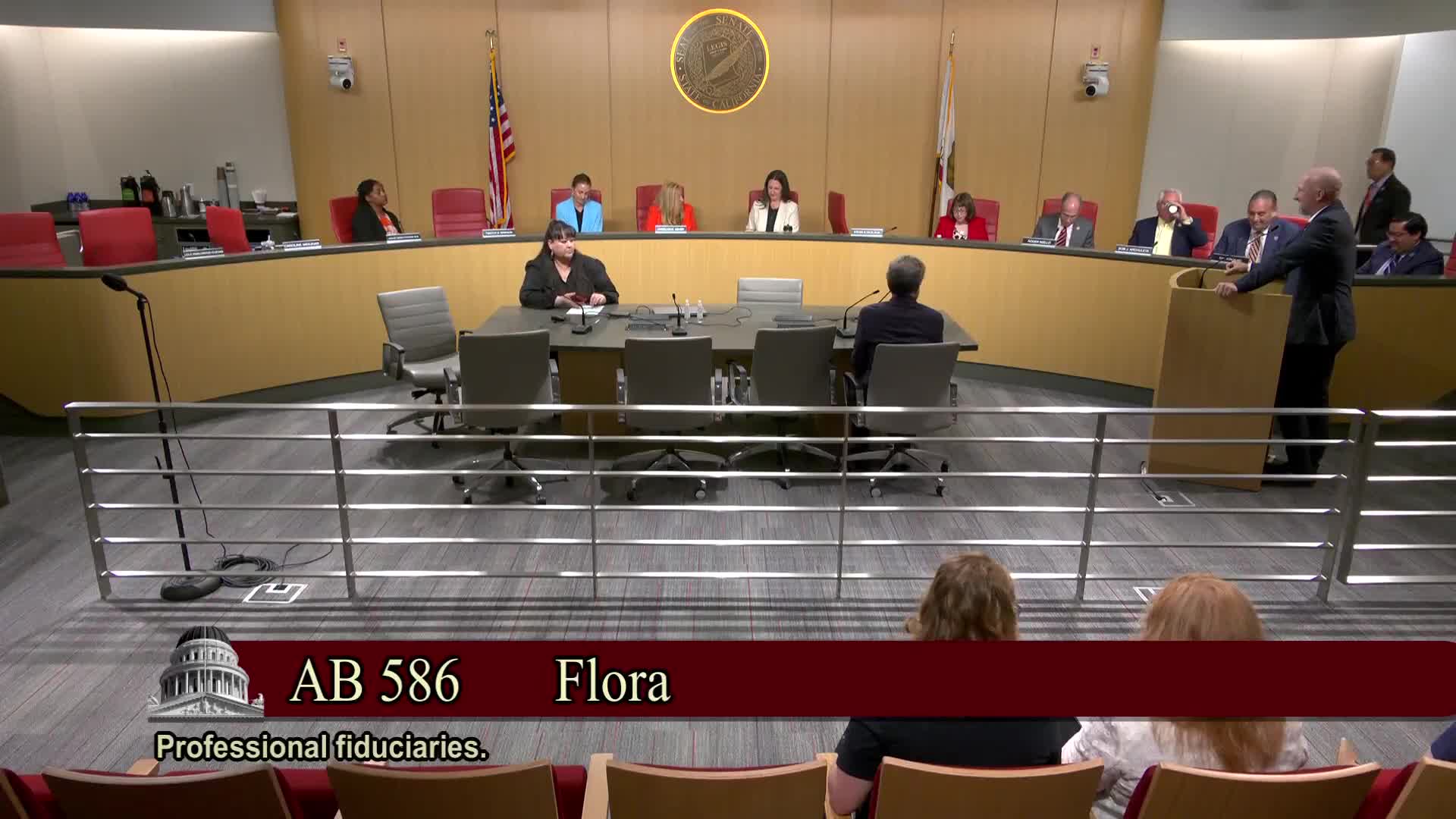
Virtual-staging disclosure bill moves forward after industry and association talks
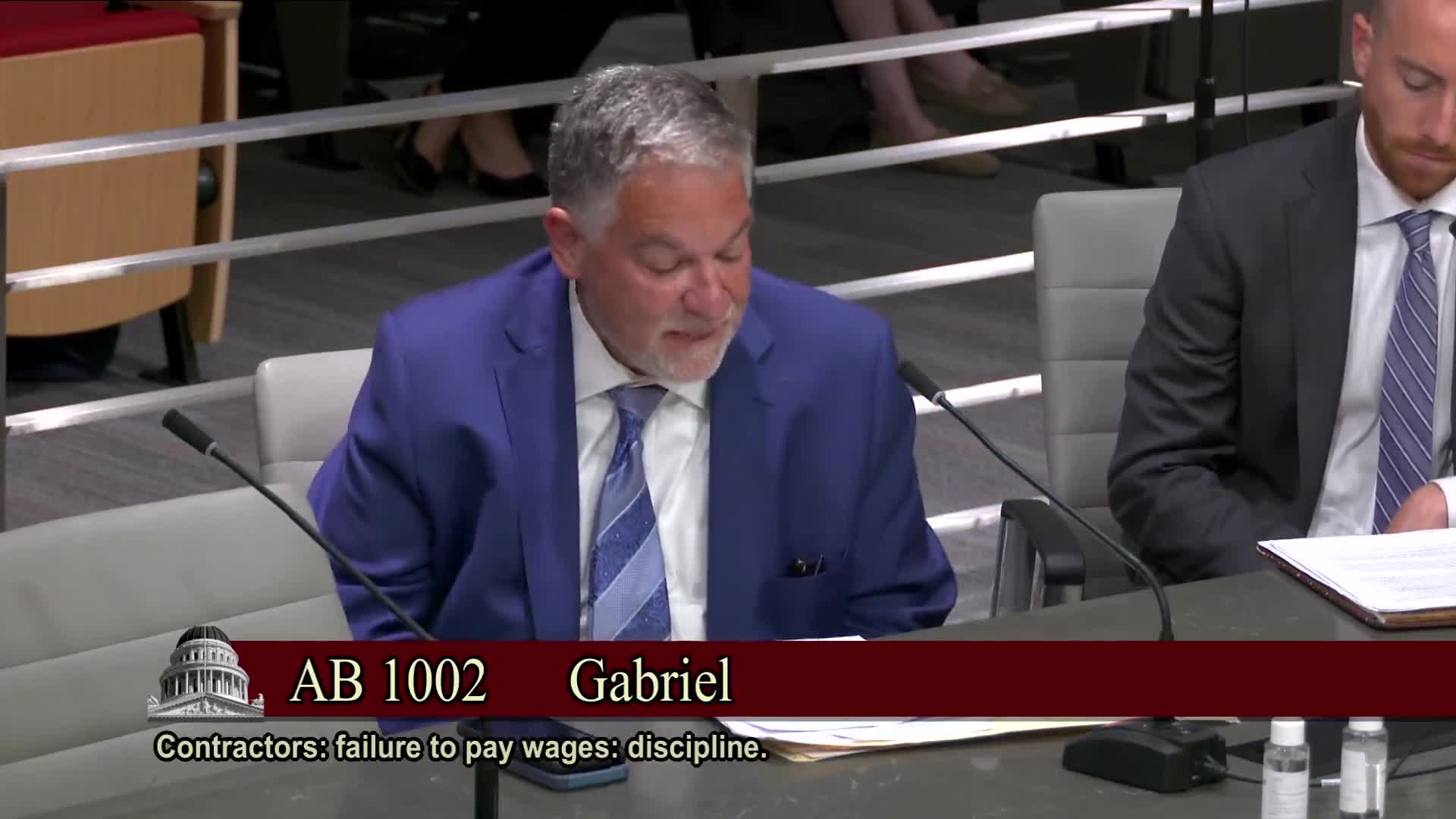
Senate committee approves bill raising penalties and documentation requirements to curb copper and infrastructure theft
